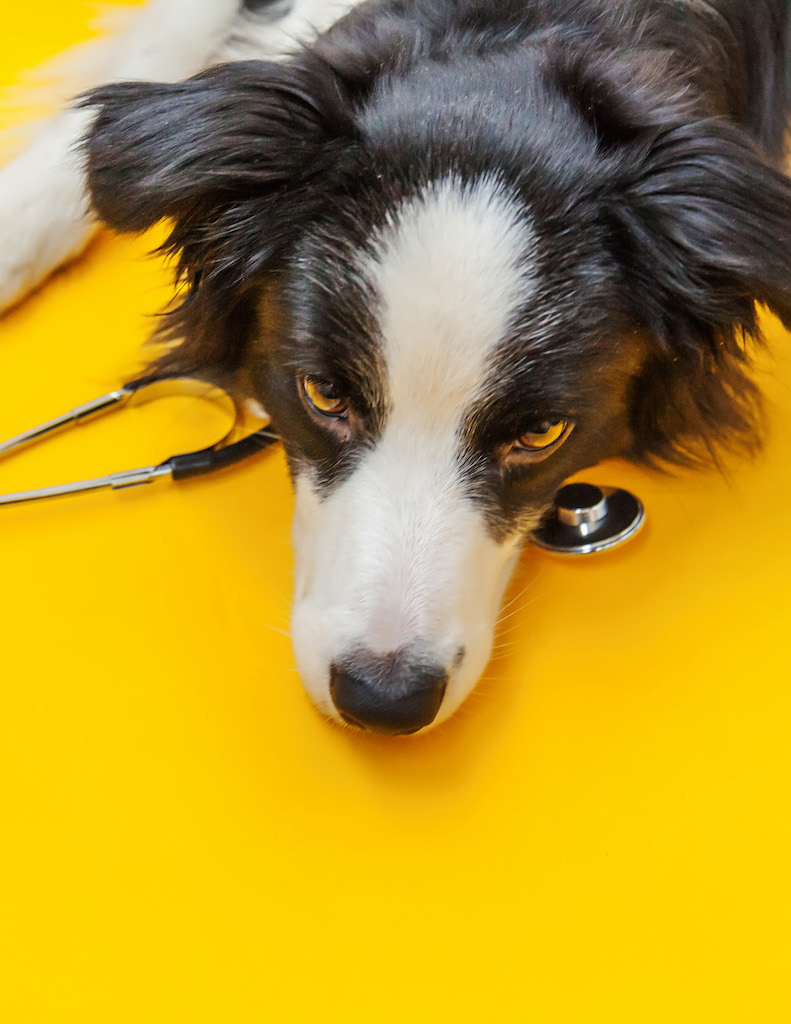Article By Sandra Harley Counts, PharmD
Did you know that half of all pet poisonings involve human medicines? Many commonly used meds, both OTC and prescription, can be harmful or even fatal to your fur babies. The top 10 unsafe classes of meds are likely in our homes or brought in by household guests. The top two offenders are pain meds ibuprofen (Advil, Motrin) and naproxen (Aleve). Next is acetaminophen/Tylenol. This includes combo products, such as Lortab or Sinus Advil. One or two Advil can cause stomach ulcers or kidney issues in dogs and cats, and even one tablet of Tylenol can dangerously affect oxygen-carrying ability of red blood cells in cats and could be fatal.
Top 10 most dangerous pet ingestions
- NSAIDs (Ibuprofen, naproxen)
- Tylenol (alone or in combo products for colds or pain)
- Antidepressants (Venlafaxine/Effexor, duloxetine/Cymbalta, escitalopram/Lexapro, sertraline/Zoloft, fluoxetine/Prozac, and others)
- Stimulants such as ADHD meds Methylphenidate/Ritalin, Concerta), Vyvanse, many others, and the decongestant pseudoephedrine/Sudafed
- Anxiety/sleep meds (alprazolam/Xanax, clonazepam/Clonopin, zolpidem/Ambien, etc.)
- Estrogens (birth control pills, menopause relief such as Estrace or Premarin, pills or patches). Dogs seems to be especially attracted to plastic birth control containers as chew toys!
- Blood pressure/heart failure pill class called ACE inhibitors (lisinopril, etc.)
- Beta blockers (metoprolol, carvedilol, and others)
- Thyroid pills (levothyroxine/Synthroid, and others)
- Cholesterol lowering statins, such as atorvastatin/Lipitor, rosuvastatin/Crestor, simvastatin/Zocor, and others
Note: Some of the above meds may be safely prescribed by vets, so don’t worry unless your pet gets into it and eats too many!
Tips and tricks for pet safety
- Store all OTC and RX containers where dogs and cats can’t access them. Consider a simple box or container they can’t open.
- Remember herbal products, people foods such as chocolate, cigarettes, vapes, alcohol, and illicit drugs may also be potentially toxic. Store them safely away from pets as well, and don’t share these products with them for fun.
- Don’t leave plastic pill organizers where pets can easily access them. Store in a drawer or other inaccessible space.
- Don’t keep meds in plastic baggies—too easy to tear open.
- Don’t leave your daily handful of pills on the counter while doing something else. Some could roll off or pets might eat them while you are not watching.
- If you drop a dose on the floor, find it ASAP and put it safely back in the container.
- Caution and check behind houseguests, especially the elderly, who may visit with meds in unsafe containers or on a bedside table.
- Hang backpacks and handbags up high if they contain anything that shouldn’t be eaten or chewed.
- Keep the pet poison 24/7 helpline number in your cell phone and on your refrigerator. The National Poison Hotline (800) 222-1222 handles human and pet emergencies at no charge. There are two other excellent pet-specific emergency numbers, but they usually charge an upfront fee of about $60. These are the Pet Poison Helpline (855) 764-7661 and the ASCPA (Am. Soc. for Prevention of Cruelty to Animals) (888) 426-4435.
- Make note of this amazing website: Petpoisonhelpline.com. You can search for any topic of ingestion from pesticides to crayons. They provide detailed information on meds, plants (some flower bulbs are highly toxic), human foods (chocolate is bad for dogs), and how to assemble a pet emergency toolkit.
- Keep a fresh bottle of hydrogen peroxide on hand in case the cure for your dog’s ingestion is to induce vomiting. Depending on the size of the dog, you give up to two ounces and may need to repeat, so keep enough on hand and in date. Be aware that not all ingestions should be treated by induced vomiting, as it may do the same damage to the throat and mouth coming back up. Note that peroxide is NOT the treatment for cats. You’ll need professional advice for your feline friends.
- Keep dogs away from chocolate. In general, the darker and more bitter the chocolate, the more poisonous it is. The chemicals in chocolate that are dangerous to pets, methylxanthines, are like caffeine and more heavily concentrated in the darker varieties. In fact, a 50-pound dog can be sickened by ingesting only one ounce of Baker’s chocolate!
Take away points: Store meds and other products safely away from your pet’s reach. Keep the help hotline numbers and website handy and consider assembling a pet emergency first aid kit. Our sweet, loyal pets are worth it!
Disclaimer: I’m a pharmacist, not a veterinarian. Please consult a veterinarian for the bottom line on any pet health questions. This review topic only relates to dogs and cats.



